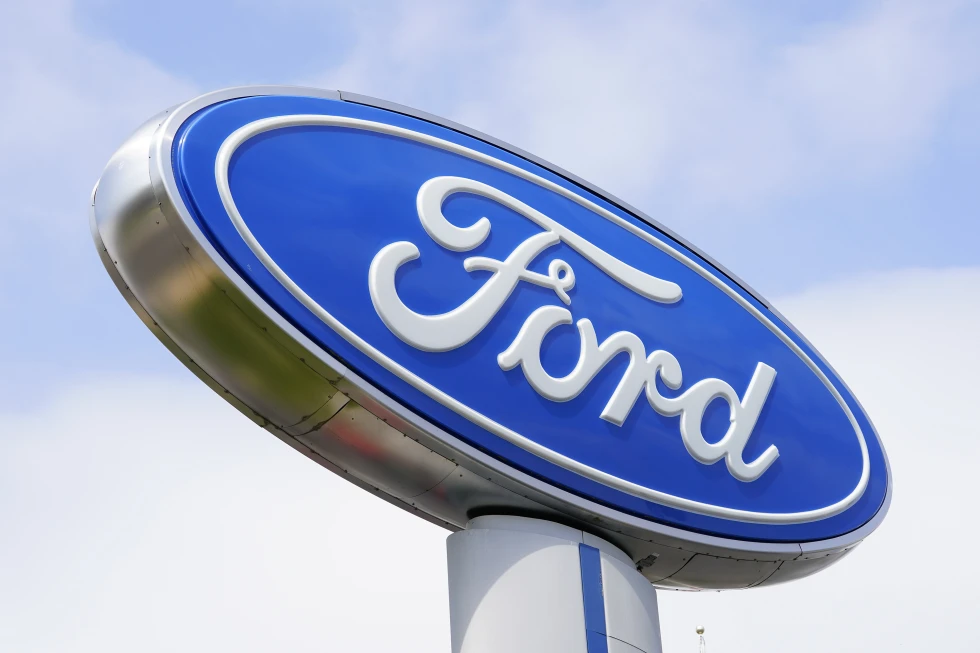In recent news, Ford has announced a recall of nearly 43,000 small SUVs due to a potentially dangerous issue involving fuel leaks from the fuel injectors onto hot engine surfaces.
This recall affects certain models of the Bronco Sport and Escape SUVs from the 2022 and 2023 model years, all equipped with 1.5-liter engines.
While the recall remedy does not involve repairing the fuel leaks directly, Ford aims to address the issue by installing a tube to redirect gasoline away from hot surfaces and updating engine control software to detect and mitigate potential risks.
This essay delves into the details of the recall, the implications for Ford and its customers, and the broader implications for automotive safety.
According to documents filed with U.S. safety regulators, Ford has identified a critical issue with the fuel injectors in the affected SUV models.
The company states that the fuel injectors can crack, leading to the leakage of gasoline or vapor near ignition sources, posing a significant fire hazard.
The recall aims to prevent potential fires by installing a tube to redirect leaked gasoline away from hot engine surfaces and updating the engine control software to detect pressure drops in the fuel injection system.
In the event of a pressure drop, the software will disable the high-pressure fuel pump, reduce engine power, and lower temperatures in the engine compartment to mitigate the risk of fires.
Ford has emphasized its commitment to customer safety in response to the recall. The company has reported five under-hood fires and 14 warranty replacements of fuel injectors related to this issue but has confirmed no reports of crashes or injuries resulting from the problem.
Despite not replacing the fuel injectors directly, Ford is confident that the recall repairs, including the installation of the tube and software updates, will effectively prevent the failure from occurring and protect customers from potential harm.
The new software will also trigger a dashboard warning light to alert drivers of any issues, enabling them to safely pull over, stop the vehicle, and arrange for service.
In addition to the recall repairs, Ford has announced that it will extend warranty coverage for cracked fuel injectors, ensuring that owners who experience this problem will receive replacements.
The company has stated that repairs for cracked fuel injectors are already available, with details of the extended warranty set to be released in June.
This proactive approach aims to address customer concerns and provide assurance that Ford is taking the necessary steps to rectify the issue and maintain high safety standards for its vehicles.
In conclusion, Ford’s recall of nearly 43,000 small SUVs due to fuel leak issues underscores the importance of proactive safety measures in the automotive industry.
By addressing the potential fire hazard through the installation of a tube and software updates, Ford is prioritizing customer safety and taking responsibility for ensuring the reliability of its vehicles.
The extended warranty coverage for cracked fuel injectors further demonstrates Ford’s commitment to customer satisfaction and underscores the company’s dedication to resolving issues promptly and effectively.
As Ford continues to work towards enhancing safety standards and addressing potential risks, this recall serves as a reminder of the importance of diligence and transparency in ensuring the well-being of drivers and passengers alike.
Vehicle recalls are a critical aspect of ensuring consumer safety and maintaining the integrity of the automotive industry.
The recent announcement by Ford regarding an extension of a 2022 recall has sparked debates and criticisms from various stakeholders.
This essay delves into the intricacies of Ford’s response, the concerns raised by industry experts, and the role of regulatory authorities such as the National Highway Traffic Safety Administration (NHTSA) in ensuring effective recall processes.
Ford’s decision to extend a recall for a recurring problem raises questions about the efficacy of their initial repair efforts. The company’s assertion that the repair has been tested on previously recalled vehicles and the absence of reported issues may provide some reassurance to consumers.
However, the skepticism expressed by Michael Brooks, the executive director of the Center for Auto Safety, highlights underlying concerns regarding the adequacy of Ford’s remedy for fuel leaks.
Describing it as a “Band-aid type recall,” Brooks suggests that Ford might be prioritizing cost-saving measures over comprehensive repairs.
The debate surrounding the impact of a 1% failure rate on driver safety underscores the potential risks associated with incomplete recall solutions.
Despite the proposed repairs, drivers could still face hazardous situations, such as being compelled to exit a freeway at reduced speeds, thereby increasing the likelihood of accidents.
Brooks’ call for a more stringent approach to addressing the root causes of vehicle issues resonates with the need for sustainable and long-term solutions in the automotive industry.
The role of regulatory bodies like the NHTSA in overseeing recall processes and ensuring consumer protection is paramount.
While NHTSA has previously cited limitations in pre-approving recall fixes, the agency’s commitment to monitoring the performance of repairs through field data signifies a step towards greater accountability.
By encouraging owners to engage with dealerships and manufacturers for clarifications, NHTSA aims to enhance transparency and facilitate informed decision-making among consumers.
Brooks’ advocacy for legislative changes to empower NHTSA to enforce more rigorous standards on recalls reflects a broader call for industry accountability and regulatory oversight.
The need for proactive measures to address underlying issues, rather than adopting short-term fixes, underscores the importance of prioritizing consumer safety and well-being.
As the automotive landscape evolves, regulatory frameworks must adapt to ensure that recalls are not merely procedural formalities but robust mechanisms for safeguarding public interests.

In conclusion, the discourse surrounding Ford’s recall extension, industry responses, and regulatory interventions underscores the complexities inherent in ensuring vehicle safety and compliance.
While Ford’s efforts to address fuel leaks are commendable, criticisms from industry experts like Michael Brooks highlight the imperative of comprehensive and sustainable recall solutions.
Regulatory bodies such as NHTSA play a pivotal role in overseeing recall processes and upholding industry standards.
Moving forward, a collaborative approach between manufacturers, regulators, and consumer advocates is essential to fostering a culture of accountability and transparency in the automotive sector.
By addressing the root causes of vehicle problems and prioritizing consumer safety, stakeholders can collectively strive towards a safer and more reliable automotive ecosystem.
